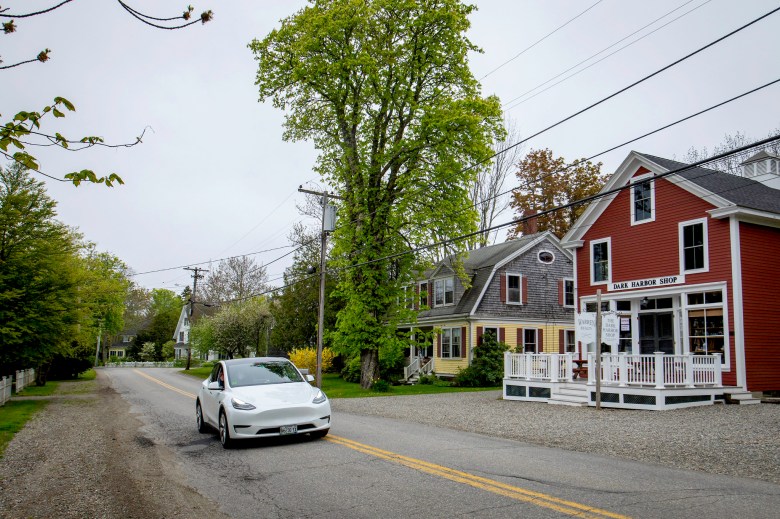It’s been nearly 20 years since states and cities started adopting climate goals, setting themselves on a path toward reducing emissions and rolling out clean energy. Whether they’re actually on track to meet those goals is up for debate.

Advocates across the country have sued municipalities they say are failing on their climate commitments, like those in San Diego who alleged the city’s climate plan lacked funding and a clear timeline, and a group in Vermont that said the state wasn’t complying with its 2020 emissions law.
But in Maine, climate advocates are getting specific with their complaints, the Energy News Network reports. A pending youth-led lawsuit targets the state’s environmental protection agencies, and says they haven’t adopted strong enough regulations to propel the state’s electric vehicle rollout.
The suit centers on Maine’s 2019 climate law. In it, the state said it would focus on cutting emissions from its “most significant sources” — and transportation tops that list. But even though the state has incentivized electric vehicle adoption, it’s still far from meeting its EV goals. So advocates say the state should implement California’s strongest-in-the-nation EV standards, which go even further than federal rules.
Environmental law professor Jennifer Rushlow told ENN that narrow lawsuits like this one tend to be more successful than broad suits that “get kind of lost to politics.” — and can inspire change in public opinion, too.
Read more about Maine’s unique climate lawsuit at the Energy News Network.
More clean energy news
💰 More federal spending is coming… Researchers estimate the clean energy transition by 2031 will demand $1 trillion in federal spending — about 15 times what has been distributed so far via the Inflation Reduction Act. (Grist)
🏭 But is it all smart? The U.S. has spent more public money on carbon capture and gas-produced hydrogen than any country, a new report finds, even though the technologies remain unproven as cost-effective climate solutions. (The Guardian)
♻️ A new spin for wind: National Renewable Energy Laboratory researchers say they’ve developed a wind turbine blade made from plant materials that can be recycled into new shapes or blades. (New York Times)
👷 Clean jobs report: The Department of Energy says clean energy jobs last year grew at twice the rate of other sectors and saw unionization rates higher than in the broader energy industry. (Reuters)
Dig deeper: The Bureau of Labor Statistics says wind energy is the country’s fastest growing field and projects 60% job growth over the next 10 years. (Axios)
🚘 More power for charging: The Biden administration announces $521 million in grants for electric vehicle charging, and says the number of publicly available chargers has doubled since 2021. (Utility Dive)
☀️ Solar’s bright future: A columnist details how increasingly cheap and widely available solar power will make once-far-fetched applications and technologies possible. (New York Times)
🇺🇲 Plus, some politics
- Vice President Kamala Harris’ promise not to ban fracking if she’s elected president pleases oil and gas executives while disappointing environmentalists — though both say there’s a wide gulf between her positions and Donald Trump’s. (E&E News)
- Experts debunk false and misleading claims about electric vehicle mandates, electricity availability, and other energy topics former President Trump and Sen. J.D. Vance are making on the campaign trail. (E&E News)
📢 We want to hear from you! Send us your questions, comments, and story tips by replying to this email.
💸 Support our work: The Energy News Network is powered by support from readers like you. If you like Energy News Weekly, share it with a friend! Or give today and help us keep our news open and accessible for all.
📧 Want more energy news? Sign up for our daily digests.
